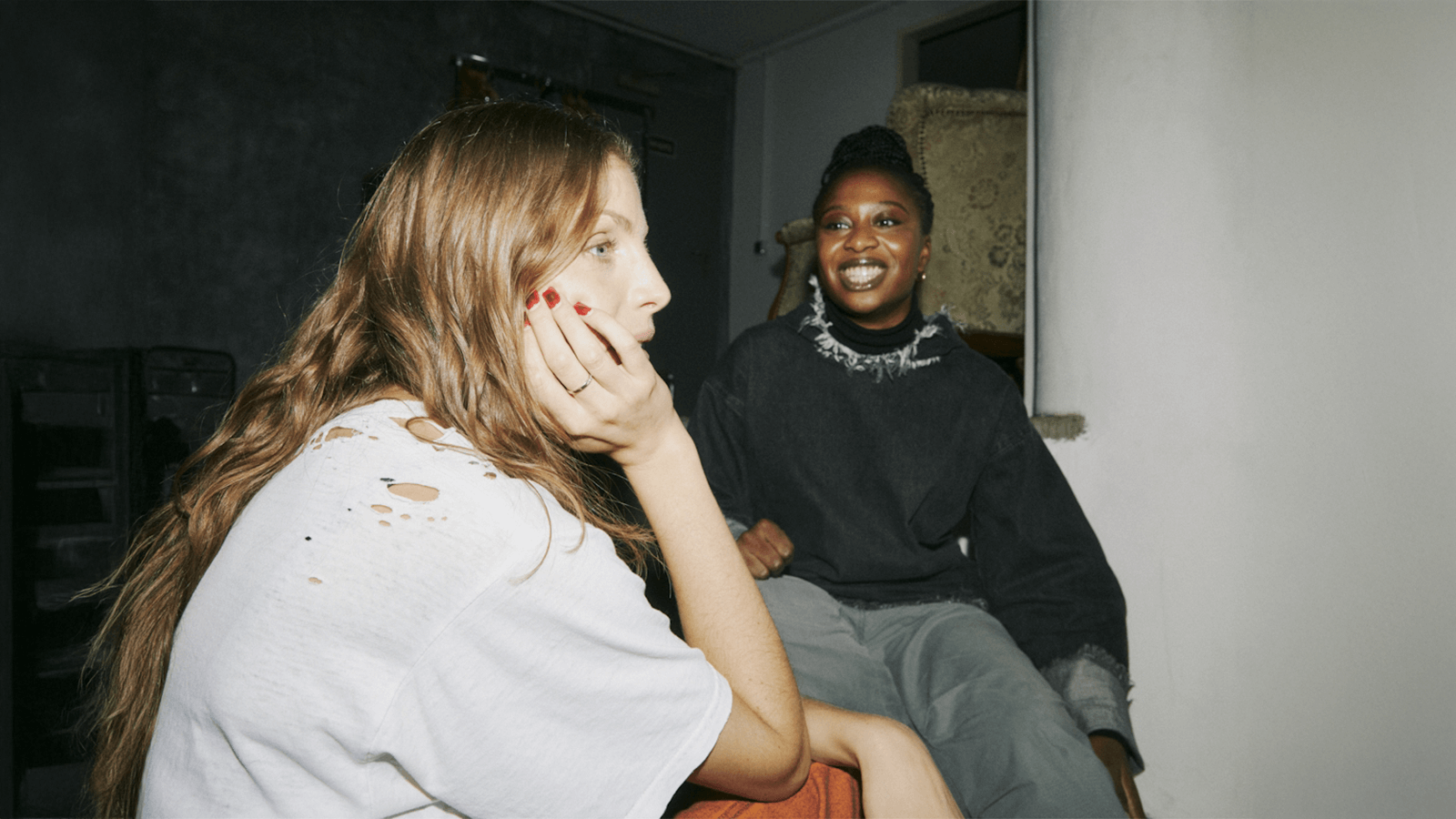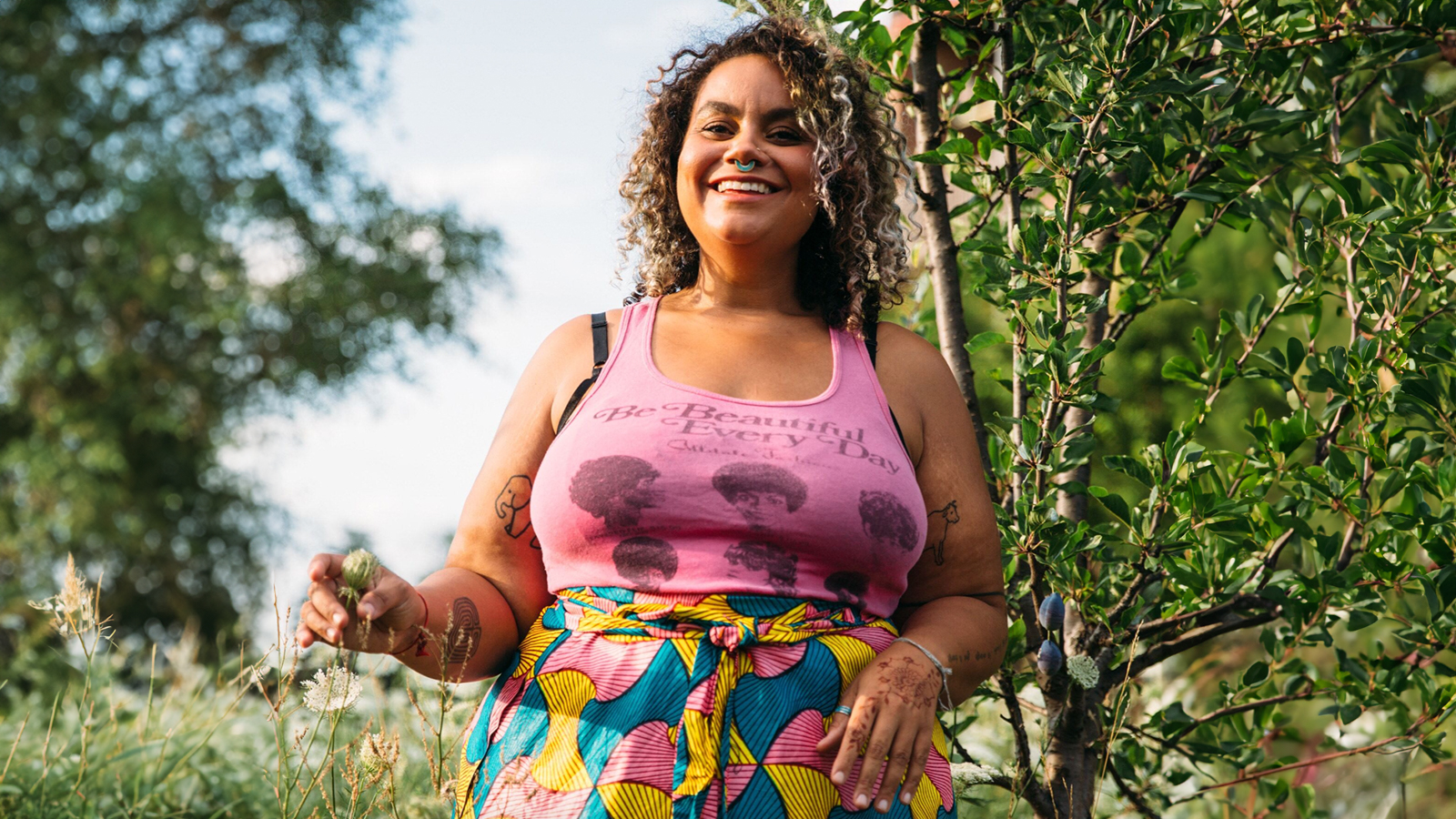Need To Break Up With A Friend? Here Are 5 Ways To Approach It In A Healthy Way
Tears and a tub of ice cream. The mandatory big night out with friends. A wardrobe refresh. A bed ‘rot day’ after the ‘it’s not you, it’s me’ conversation. When it comes to breaking up with a romantic partner, there’s no shortage of advice for helping us heal heartache.
But with platonic friendships – even lifelong connections filled with shared memories and declarations that ‘maybe we can be each other’s soul mates’ – the protocol for calling it quits falls into an emotional grey area.
What do you say when your friendship just isn’t working anymore? What advice is there for when you find yourself in a situation – as I did recently – when someone asks how to deal with a friend who’s ‘just stopped responding’?
“I know you’ve dealt with this before,” explains Alice*, referring to times I’ve been through painful friendship breakups myself – once in my late teens (we later reconnected) and again in my twenties (I was ghosted). But despite my familiarity with the fizzle and being the type of person who waxes poetic about the invaluable place friendships hold in our lives – the shoulder to cry on, the helping hand, the guaranteed laughs – I find myself stumped. When it comes to ending a friendship, there is no social script.
Healthy platonic breakups are something people often struggle with, explains therapist and author Jodie Cariss. “Many of us have friendships we drift along in long after we stop having things in common, often without knowing how to end them healthily,” she notes. “We become accustomed to just saying nothing and phasing out contact. If we’re at the receiving end of this ghosting, [it] can be just as devastating as a romantic breakup – but it’s a feeling that’s rarely recognised socially or represented in the media.”
Cariss – co-founder of Self Space, a counselling service that alongside individual sessions also offers ‘duo therapy’ for non-romantic relationships – blames this lack of representation of platonic friendship troubles for our inability to know how to end them with care.

“It can be helpful to think of friendships like house plants,” says Cariss. “Some just require sunlight and a little bit of watering. They can thrive despite long periods of disconnect, and you can pick up where you left off with minimal fuss.” Others resemble “thirsty ferns who are a little needy but perk up once you shine your light on them, and offer a lot of joy and oxygen in return”.
Being aware of the nature of a particular friendship is “a crucial first step in figuring out how you want it to proceed – or if it needs to end,” explains Cariss. “Like house plants, friendships improve your quality of life, so regularly checking in with yourself to understand which relationships are nurturing you and adding to your life is essential.”
If you feel as though a friendship might be coming to an end, one of the healthiest steps to take is to self-reflect. “If you sense a friend is holding back, and you’re scrabbling to reconnect, first ask yourself ‘Why?’” she suggests. “Do I want to be in this friendship? Are you simply bound by history, or do you see a new season with this person?”
Next, speak openly to your friend. In the event of an ending, “try not to get drawn into a ‘he said she said’ type of discussion with other friends about the situation,” stresses Cariss. “Be respectful and kind and grateful for what you have shared and allow yourself to let go with love for both you and them.”
Much like after romantic heartbreak, finding the confidence to move on with new platonic connections can feel daunting. So post-friendship breakup, Cariss says, first we should “look inwards. Ask yourself; What did I bring to the table? Was I a good enough friend? What could I learn from their experience of me? What might I do differently next time? How can I use this experience to grow?”
It’s a stance that the therapist explains will “support you in your next friendships. Self-awareness is an attractive quality and helps you be open to relationships that will nurture you and vice versa.”
Therapist Jodie Cariss’ 5 Tips For Navigating A Friendship Breakup
- Understand That All Relationships Evolve – “The ultimate sign of a brilliant friendship is feeling ‘seen’ by someone and seeing them in return; someone who is a friend to us in our vulnerabilities more than our triumphs, forgives us and who we will try to forgive in return. Friendships take different forms; some are for seasons and some last a lifetime.”
- Be Honest With Your Feelings – “When deciding to end a friendship, it’s important to be clear what you want and need from that relationship, and cultivate ways to ask for this. Check in with the friend and be as open as you can to feedback, even if it’s sometimes hard to hear. If it has run its course, remember this doesn’t mean either of you is necessarily at fault – you may simply have outgrown the relationship.”
- Seek Support – “When a friendship has drifted, ask yourself honestly: can this person and relationship meet you where you are at, and what responsibility can you take for guiding the relationship to be nutritious for you both? Working through this in duo therapy can give you a safe space to realign, work on tensions and develop awareness and understanding of and for each other.”
- Take Time To Heal – “Grief plays a big part in the multitude of feelings when a friendship ends. Treat yourself with tenderness and compassion and know that what you’re experiencing is hard – after all, we are losing both the person and a version of ourselves that was reflected in that relationship.”
- Stay Open To New Connections – “Once a month, I ask someone new for a coffee and no one has said no yet. I’ve made some great pals this way. Most of us are lonely in some way, so be brave – extending an invitation is a lovely way to open yourself up to new friendships.”
*Name has been changed




